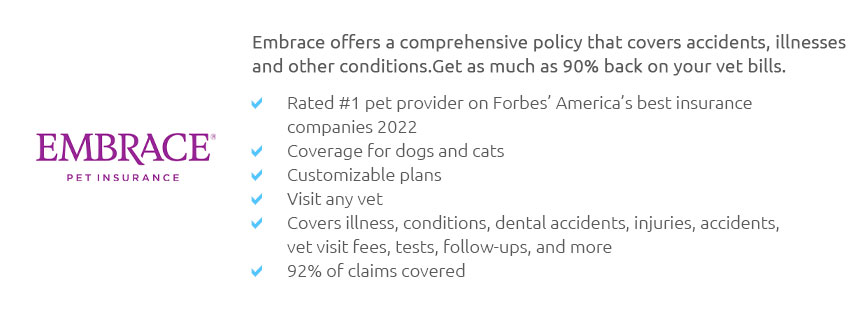 |
 |
 |
 |
 |
 |
|
 |
|
 |
|
 |
|
 |
|
 |
 |
 |
 |
 |
 |
 |
 |
Is There Insurance for Cats?When it comes to the well-being of our feline companions, one question that often surfaces is: Is there insurance for cats? The short answer is yes, there is indeed insurance available for cats, offering peace of mind to pet owners who consider their cats as integral members of the family. In today’s world, the concept of insuring our pets is not just a burgeoning trend but a practical solution to managing unexpected veterinary expenses. Understanding the nuances of pet insurance, especially for cats, requires a keen eye on the varied options available and what they entail. Pet insurance for cats typically covers a range of medical issues, from accidents and injuries to chronic illnesses and even wellness visits. The coverage is designed to alleviate the financial burden that may arise from sudden health emergencies, allowing pet owners to make decisions based on care rather than cost. In a society where veterinary advancements have made treatments more effective yet often more expensive, having a safety net in the form of insurance can be invaluable. Policies differ significantly, with some offering comprehensive coverage that includes regular check-ups, dental care, and vaccinations, while others might focus solely on emergencies or specific ailments. Insurance for cats can be categorized primarily into accident-only, accident and illness, and wellness plans. Accident-only plans cover situations like broken bones or ingestion of foreign objects. These plans are typically the most affordable option, providing basic protection against unforeseen mishaps. Accident and illness plans, on the other hand, are more comprehensive, covering a variety of health issues that cats might face over their lifetimes. These plans are popular among pet owners who want a broad scope of coverage, including conditions like diabetes, cancer, or urinary tract infections. Finally, wellness plans are designed to cover routine care, such as vaccinations and annual exams, helping owners maintain their cats’ health proactively. The decision to insure your cat is a personal one, often influenced by the pet's age, breed, and existing health conditions. Younger cats, for instance, might benefit more from wellness plans that focus on preventative care, while older cats could require more comprehensive coverage due to age-related illnesses. Moreover, the breed of the cat can also play a role in determining the type of coverage needed. Certain breeds are predisposed to specific health issues, making tailored insurance plans more appealing. While the concept of insuring cats is increasingly gaining traction, it is not without its skeptics. Some argue that the cost of insurance over a cat's lifetime may outweigh the benefits, particularly if the pet remains healthy. However, the counter-argument is that insurance provides a financial buffer against rare but potentially devastating medical bills, allowing for better decision-making in times of crisis. FAQs About Cat Insurance
Cat insurance typically covers accidents, illnesses, and sometimes wellness care, depending on the plan. This can include surgeries, medications, and diagnostic tests.
Insurance can be particularly beneficial for older cats as they are more susceptible to age-related illnesses, which can be expensive to treat.
Most insurance plans do not cover pre-existing conditions, so it's important to enroll your pet while they are healthy.
Consider your cat’s age, health status, and potential risks. Compare different policies to find one that offers the best coverage for your needs.
Most insurance policies allow you to use any licensed veterinarian, but it's always best to confirm with the provider. https://www.petinsurance.com/
The best pet insurance ever by Nationwide. Plans covering wellness, illness, emergency & more. Use any vet and get cash back on eligible vet bills. https://www.petinsurance.com/cat-insurance/
Having pet insurance for your cat isn't just about covering costsit's about peace of mind. When your cat needs medical attention, the last thing you want to ... https://www.metlifepetinsurance.com/cat-insurance/
With plans starting at $7 per month, cat insurance reimburses you for covered expenses on your pet's health care, helping you save money and keep kitties ...
|